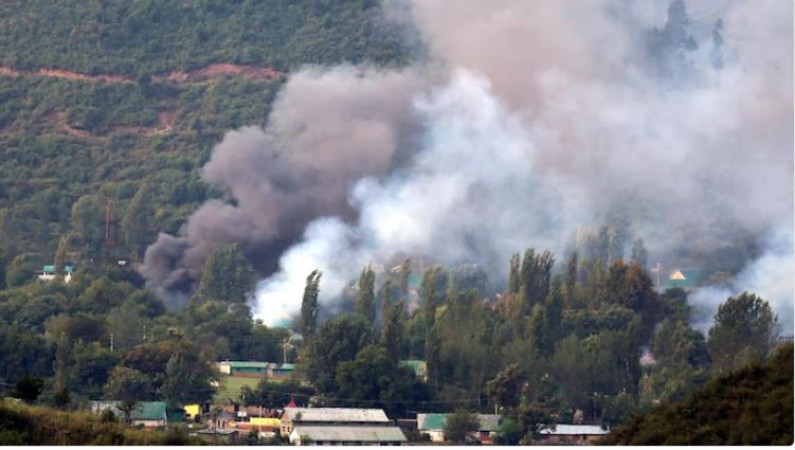
Seven Years of Uri Terror Attack: The Day When the Indian Army Suffered Its Worst Loss in 20 Years - On September 18, 2016, the Indian Army faced one of the darkest days in its recent history when a group of heavily armed terrorists launched a deadly attack on the 12 Brigade Headquarters in Uri, a town in the northern Indian state of Jammu and Kashmir. This brutal assault marked the worst loss for the Indian Army in over two decades, leaving 18 soldiers dead and more than 30 others injured. In this article, we delve into the details of the Uri terror attack, the circumstances leading up to it, and its repercussions.
The Attack Unfolds
The Uri terror attack unfolded in the early hours of September 18, 2016, when four highly trained terrorists infiltrated the Indian side of the Line of Control (LoC), the de facto border that separates Indian-administered Kashmir from Pakistan-administered Kashmir. The terrorists had crossed the rugged and mountainous terrain, trekking for about six kilometers, before reaching their target—the 12 Brigade Headquarters.
The attackers were armed to the teeth, each carrying an AK-47 rifle equipped with grenade launchers clipped under their barrels. Their arsenal also included over 50 incendiary grenades specially designed to ignite fires. Their primary objective was to target the fuel depot within the military camp.
The Fuel Depot Inferno
The Uri military camp housed a strategically important fuel depot containing hundreds of 200-liter oil barrels. These barrels contained diesel for military trucks, petrol for Maruti Gypsies used by the 12th brigade stationed near Uri, and kerosene for cooking food in high-altitude posts situated in the Pir Panjal range.
Around 5:30 am, the terrorists launched their brutal assault. They fired a barrage of over a dozen incendiary grenades, setting off a devastating fire. The flames quickly engulfed the entire area, endangering the lives of the soldiers stationed at the camp. The resulting chaos and panic added to the challenges faced by the Indian Army in combating the attackers.
Casualties and Losses
The Uri terror attack inflicted a heavy toll on the Indian Army. Eighteen brave soldiers lost their lives, and more than 30 others sustained injuries of varying degrees. The attack was meticulously planned, and the terrorists showed no mercy, demonstrating their intent to cause maximum destruction and casualties.
The Response
In response to the terrorist assault, the Indian security forces launched a swift and determined counter-operation. Despite suffering heavy losses, they managed to eliminate all four terrorists. Their actions prevented further damage and loss of life at the military camp. The operation showcased the bravery and commitment of the Indian Army in the face of adversity.
Aftermath and Repercussions
The Uri terror attack had profound implications for India-Pakistan relations and the security situation in the region. India accused Pakistan-based militant groups, particularly Jaish-e-Mohammed, of orchestrating the attack. This accusation strained bilateral relations between the two countries, with India demanding that Pakistan take concrete action against the perpetrators and their handlers.
In response to the attack, India also took diplomatic measures to isolate Pakistan on the international stage. It garnered support from several countries condemning terrorism and urging Pakistan to curb militant activities on its soil. The attack further intensified the global focus on terrorism emanating from the region and the need for a coordinated international response.
The Uri terror attack scars still run deep in the hearts of the Indian military and the nation. It remains a grim reminder of the sacrifices made by Indian soldiers in the face of terrorism and the enduring need for vigilance and preparedness. The attack also underscored the importance of international cooperation in combating terrorism and holding nations accountable for harboring and supporting terrorist organizations. While time may pass, the memory of that fateful day in Uri will continue to serve as a solemn tribute to the bravery and resilience of the Indian Army.